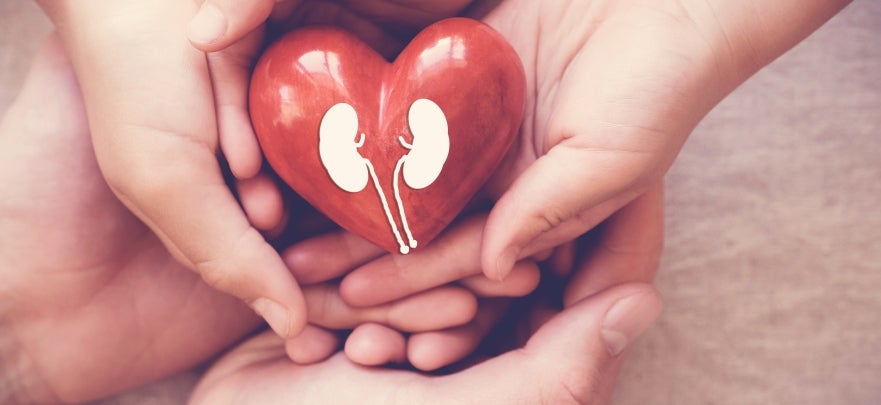The Link between High Blood Pressure and Kidney Health
High blood pressure increases the risk of developing kidney disease and causing permanent damage to your kidneys. Damaged kidneys cannot filter blood as well as they should. As a result, excess fluid and waste from the blood remain in the body and may cause other health problems. Controlling your blood pressure can help prevent kidney disease, or help keep it from getting worse.
What Is High Blood Pressure?
Blood pressure is the measurement of the force of blood against your artery walls as it flows through your body. High blood pressure, also called hypertension, means the force against your artery walls is consistently too high.
Blood pressure readings use two numbers. Systolic (the top number) measures how much pressure your blood is exerting when your heart beats. Diastolic (the bottom number) measures how much pressure your blood is exerting when your heart is between beats. Blood pressure readings are typically expressed as systolic "over" diastolic.
High blood pressure is typically 130 or higher systolic pressure and 80 or higher diastolic pressure.
How Do Your Kidneys Work?
Your kidneys are a pair of regulatory organs located on either side of your back. Your kidneys and your circulatory system depend on each other for good health. Your kidneys are the filtration system for your blood. They use a lot of blood vessels to remove waste and excess fluids from the blood. When the blood vessels become damaged, the nephrons, the part of the kidney that actually produces urine from the waste, don’t receive the oxygen and nutrients they need to function well. This is why high blood pressure, or hypertension, is the second leading cause of kidney failure. Over time, uncontrolled high blood pressure can cause arteries, renal blood vessels, around the kidneys to narrow, weaken, or harden. The result is your kidneys will not receive enough blood.
-
Damaged kidney arteries do not filter blood well. Kidneys have small, finger-like nephrons that filter your blood. Each nephron receives its blood supply through tiny hair-like capillaries, the smallest of all blood vessels. When the arteries become damaged, the nephrons do not receive the essential oxygen and nutrients—and the kidneys lose their ability to filter blood and regulate the fluid, hormones, acids, and salts in the body.
-
Damaged kidneys fail to regulate blood pressure. Healthy kidneys produce a hormone called aldosterone to help the body regulate blood pressure. Kidney damage and uncontrolled high blood pressure each contribute to a negative spiral. As more arteries become blocked and stop functioning, the kidneys eventually fail.
Protect Your Kidneys by Managing Your Blood Pressure
Lowering high blood pressure is essential to your overall health. Your doctor can create a treatment plan to help you take control of your blood pressure. Here are some steps to discuss:
-
Eat a healthy, low-salt diet
-
Do regular physical activity
-
Manage stress
-
Quit smoking
-
Maintain a healthy weight
-
Limit caffeine and alcohol intake
-
Take any prescribed medications and follow the protocol set by your physician
Kidney failure due to high blood pressure is a cumulative process that can take years to develop. But you can limit your risk by managing your blood pressure. Don’t let high blood pressure damage your kidneys. Talk to your doctor about lifestyle changes that can lower your blood pressure and protect your kidneys.






